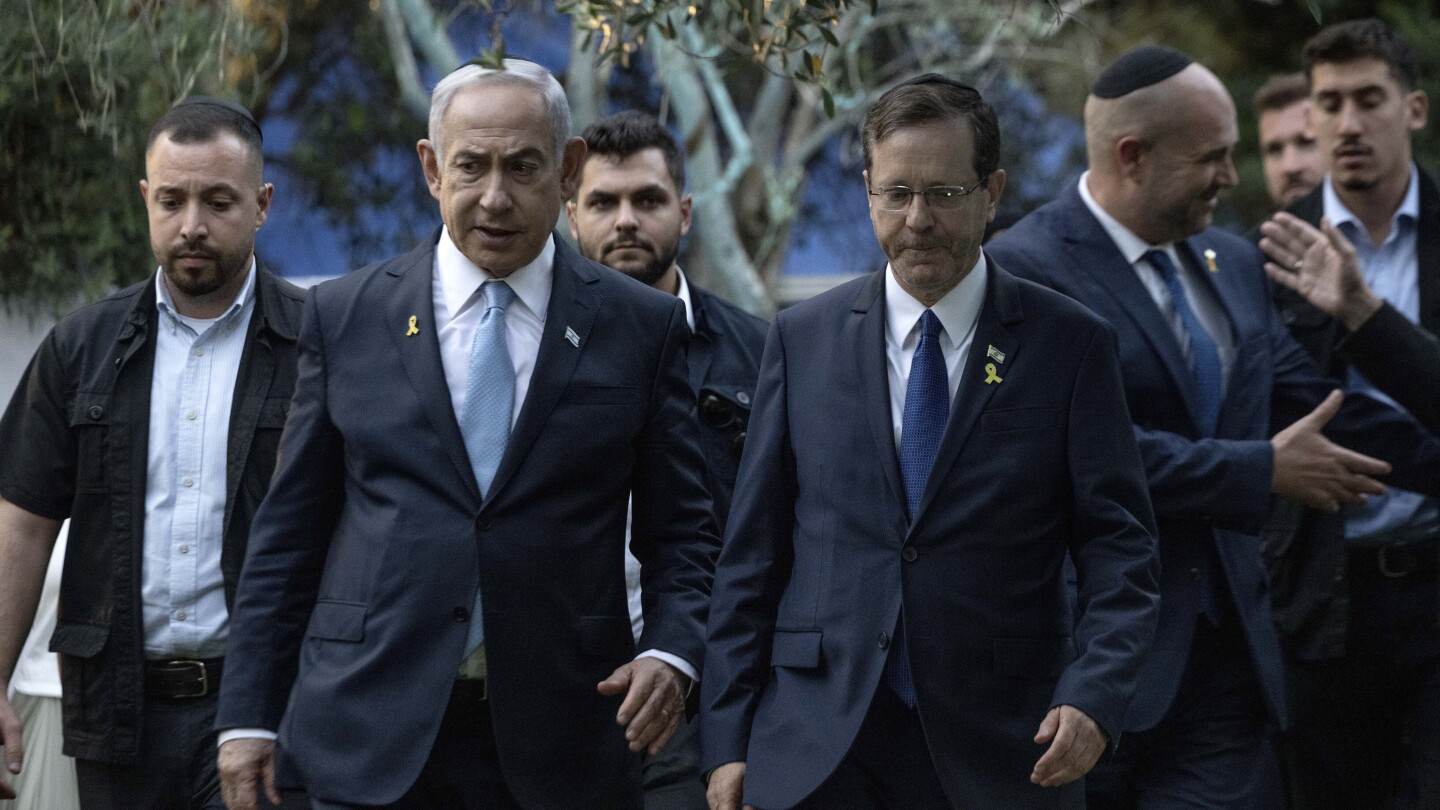The Lebanese militant group Hezbollah said it launched a drone attack early Monday on northern Israel that the Israeli military said wounded two Israeli troops and set off a fire.
The violence came as fears of an all-out regional war mount following the killings last week of a senior Hezbollah commander in Lebanon and Hamas’ top political leader in Iran.
The Iranian-backed Hezbollah said in a statement it targeted a military base in northern Israel in response to “attacks and assassinations” carried out by Israel in several villages in south Lebanon.
The attack did not appear to be part of a more intense retaliation expected in response to the killing of Hezbollah commander Fouad Shukur in Beirut last week.
The Israeli military said fire services were working to put out a fire that was ignited as a result of the attack in Ayelet HaShahar in the upper Galilee.
Israel and Hezbollah have exchanged near-daily strikes for the past 10 months against the backdrop of the war in Gaza, but they have previously kept the conflict at a low level that had not escalated into full-on war.
Last week’s assassinations of Hamas political leader Ismail Haniyeh in Iran’s capital, Tehran, and Hezbollah commander Shukur in Beirut raised tensions in the region. Israel has been bracing for a retaliation from Iran and its allied militias.
___
Here’s the latest:
Lebanese state media says Israeli drone strike kills 2 in southern Lebanon
BEIRUT — Lebanon’s state-run National News Agency says an Israeli drone strike near a cemetery in a southern village killed two people, including a paramedic.
The agency did not give further details about the Monday morning strike in the village of Meissa al-Jabal. It said one of the dead was a member of the Islamic Risala Scout Association paramedic group. The group identified the member killed as Mohammed Fawzi Hamadi.
Tensions in the region have risen sharply since last week after an Israeli airstrike in Beirut killed Fouad Shukur, a top commander with the militant Hezbollah group.
Hezbollah leader Hassan Nasrallah vowed that the group will retaliate against Israel.
Australia lifts terrorism threat level from ‘possible’ to ‘probable,’ but says no specific threat
MELBOURNE, Australia — The Australian government on Monday elevated the nation’s terrorism threat alert level from “possible” to “probable,” citing concerns about increasing radicalization among young people and community tensions over the Israel-Hamas war.
It is the first time the threat level has been elevated to the midpoint of the five-tier National Terrorism Threat Advisory System since November 2022. The level had been “probable” the previous eight years.
But Prime Minister Anthony Albanese added that while government officials think the current climate makes terrorism an increased danger, they didn’t know of any specific threats.
“I want to reassure Australians probable does not mean inevitable, and it does not mean there is intelligence about an imminent threat or danger,” Albanese told reporters.
He said the government was acting on the advice of the Australian Security Intelligence Organization, the nation’s main domestic spy agency known as ASIO.
“The advice that we’ve received is that more Australians are embracing a more diverse range of extreme ideologies and it is our responsibility to be vigilant,” Albanese said.
Netanyahu says Israel is already in a ‘multi-front war’ with Iran
TEL AVIV, Israel — Israel is already in a “multi-front war” with Iran and its proxies, Israeli Prime Minister Benjamin Netanyahu told a Cabinet meeting Sunday, as the United States and allies prepared to defend Israel from an expected counterstrike and prevent an even more destructive regional conflict.
Tensions have soared following nearly 10 months of war in Gaza and the killing last week of a senior Hezbollah commander in Lebanon and Hamas’ top political leader in Iran. Iran and its allies have blamed Israel and threatened retaliation. Hamas says it has begun discussions on choosing a new leader.
Netanyahu said Israel was ready for any scenario. Jordan’s foreign minister was making a rare trip to Iran as part of diplomatic efforts — “We want the escalation to end,” Ayman Safadi said — while the Pentagon has moved significant assets to the region.

